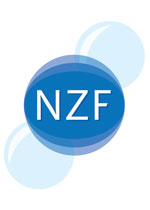 Want to receive Best Practice Bulletin directly to your inbox?
Sign up here.
Want to receive Best Practice Bulletin directly to your inbox?
Sign up here.
Published: 7th February, 2025
Contents
Welcome to the latest Issue of Best Practice Bulletin. Today’s edition has been kept brief as this week may be busier for many of you; or you may be enjoying an extended Waitangi celebration. We have focused on new resources available on our website, and timely news items for primary care.
New from bpacnz: Management of stable angina pectoris

Stable angina pectoris is defined by predictable or reproducible chest pain caused by transient myocardial ischaemia occurring when cardiac oxygen supply cannot meet demand. In contrast to unstable angina, which is considered an acute coronary syndrome, symptoms of stable angina are relieved with rest or sublingual glyceryl trinitrate. The understanding of stable angina has evolved over time. While typically considered a manifestation of obstructive coronary artery disease, many people who present with symptoms of angina have no evidence of severe coronary artery stenosis on angiography. This has led to the concept of ischaemia with no obstructive coronary artery disease (INOCA), a collection of conditions where blood flow to cardiac tissues is restricted in the absence of obvious epicardial blood flow obstruction.
Stable angina can only be confirmed after cardiology assessment, but in the meantime, treatment can be initiated in primary care. Pharmacological secondary prevention should be established, including an antiplatelet, a statin and possibly an ACE inhibitor or ARB depending on co-morbidities. Medicines to control angina symptoms can also be initiated, including a beta blocker or calcium channel blocker, or nitrates second-line. Glyceryl trinitrate spray can be used for acute symptom relief. Revascularisation is a potential treatment option for patients who do not respond to optimal pharmacological intervention and those later found to have extensive multivessel disease.
Read the full article here.
A B-QuiCK summary is also available for this topic.
Also new from bpacnz: GAD peer group discussion

In December last year, we published a new article on generalised anxiety disorder (GAD) in adults. We have now developed a peer group discussion for this topic, to be used among peer/study groups or for self-reflection of practice. We provide the tricky questions and let you and your peers think about the solutions, e.g. What is your usual approach to diagnosing a patient with GAD? Do you use a screening questionnaire such as the GAD-2? In your experience, do you find that GAD often co-exists with other anxiety, mood or spectrum disorders such as OCD, depression or ADHD?
View the peer group discussion, here.
In case you missed it: Diagnosing and managing heart failure

Heart failure management is evolving; we have now published revised editions of our resources on this topic. International guidelines recommend that most patients with heart failure should be promptly established on four guideline-directed medical therapy (GDMT) medicines and up-titrated to the highest tolerated or target dose, unless contraindicated. This includes an angiotensin receptor-neprilysin inhibitor (ARNI; preferred) or an ACE inhibitor/ARB if this is not possible, a beta blocker, a mineralocorticoid receptor antagonist (MRA) and a sodium-glucose co-transporter-2 (SGLT-2) inhibitor*. Wherever possible, clinicians should aim for early optimised use of all four GDMT options to maximise prognostic outcomes (e.g. risk of hospitalisation and mortality) and limit disease progression.
Click here to access a summary of key practice points or go straight to Part 1 (diagnosis) or Part 2 (management).
A B-QuiCK summary is available here. A clinical audit on heart failure management is also available here.
* Funded access to empagliflozin was widened on 1st December, 2024, to include people with heart failure who meet certain other criteria
Proposal to fund desogestrel (Cerazette)
Pharmac is seeking feedback on a proposal to fund the progestogen-only oral contraceptive pill desogestrel (Cerazette) without restriction from 1st April, 2025. Desogestrel is said to be more effective at inhibiting ovulation and has a wider window for error (must be taken within 12 hours of the regular dosing time), compared with other progestogen-only pills (Microlut and Noriday 28). Funding desogestrel would also provide patients affected by recent supply issues of other contraceptives, with another option. Consultation closes 4 pm Tuesday, 18th February. An associated news release is available here.
Medicine news in brief
Reminder: Information about medicine supply is available in the NZF at the top of the individual monograph for any affected medicine and summarised here. Medicine notices are also available directly from Pharmac, here.
NZF updates for February
 The February release of the NZF is now available. Read about all the changes, here. Also read about any significant changes to the NZF for Children, NZFC, here.
The February release of the NZF is now available. Read about all the changes, here. Also read about any significant changes to the NZF for Children, NZFC, here.
Upcoming ACC webinar
ACC is hosting an upcoming webinar aimed at general practice: Working together to improve outcomes. This will focus on the challenges ACC has identified relating to rising numbers of people who are off work due to injury and the increase in time they are being signed off work for. A delayed recovery and prolonged disengagement from employment negatively affects both the injured person and those around them. ACC will also discuss ways they are trying to address these challenges. As part of this webinar, clinicians will have the opportunity to contribute their ideas and solutions to these challenges.
The webinar will be held in two sessions (covering the same information) on Wednesday 19th February at 12.30 pm (register here) and 6 pm (register here). Recordings will be available at a later date.
Reminder: bpacnz has recently published a comprehensive guide for supporting primary care clinicians to help patients navigate the ACC Recovery at Work process, including considerations when conducting an initial medical certification consultation, medical certificate definitions, as well as the ACC-mediated supports available if further assistance is required. Read the full article here. A B-QuiCK summary is also available.
 This Bulletin is supported by the South Link Education Trust
This Bulletin is supported by the South Link Education Trust
If you have any information you would like us to add to our next bulletin, please email:
editor@bpac.org.nz
© This resource is the subject of copyright which is owned by bpacnz. You may access it, but you may not reproduce it or any part of it except in the limited situations described in the terms of use on our website.
